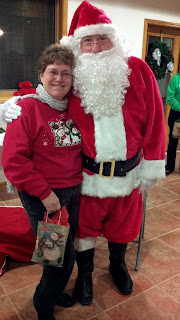I checked my PO Box yesterday and
found an order for Alzheimer’s Anthology
of Unconditional Love. It was obviously from the ad that ran in Rural Missouri in 2007 when the book
first came out. It happens occasionally. Someone is browsing through their old
copies, come across the ad, and order a book.
This afternoon, I went into Facebook
and saw where someone posted a note on a vote for my blog in Healthline’s
contest, “Did you see the ad for Linda’s book in Rural Missouri?” What? I had
just gotten my Rural Missouri today.
I pulled it out, leafed through it and there was the ad. Looks just as good as
it did when the book was hot off the press.
The story of the anthology is a
story in itself. I had never published a book before, but after joining the Columbia
Chapter of the Missouri Writers’ Guild, I learned a lot about self publishing. I
married that with my fundraising experience and came up with the idea to get
sponsors, publish a book of Alzheimer’s stories, and give the proceeds to the
Alzheimer’s Association. I pitched the idea to the staff at the Mid-Missouri Chapter
office and they didn’t think I was crazy, so I proceeded.
One small problem to overcome. How
could I get the stories? I sent emails to all my Alzheimer’s contacts, posted
on message boards, and spread the word. Then, Jim McCarty of Rural Missouri asked me to write an
op-ed about Alzheimer’s and the anthology. Once it was published, the stories
came pouring in. The Chapter made the selections, and I began to build a book
of compelling slice-of-life stories about our friends and neighbors who met
Alzheimer’s up close and personal. These were the stories of caregivers’
unconditional love and the courage of those diagnosed with the disease.
Sandy Jaffe, the owner of BookSource
and an Alzheimer’s advocate I met at the Alzheimer’s Forum in Washington, D.C.,
offered his expertise. He became my hero in this story. He hired a cover designer, found a distributor, and a printer. He called in favors and the book was
published at no personal cost for me or the Alzheimer’s Association. Proceeds
would be pure profit. Before long, we sold the first 1,000 copies and began the
process for the second printing.
Just when I thought the books were
about all gone, Sandy found some in his warehouse and sent them to me. So, luckily,
I have plenty of books to fill any orders the ad might generate.
By the way, if you don’t get the Rural Missouri and would like to order a
copy of Alzheimer’s Anthology of
Unconditional Love: The 110,000 Missourians with Alzheimer’s the
information is on my Website at www.lsfisher.com,
or you can send $10 + $2.50 shipping to me at PO Box 1746, Sedalia MO 65302.
Please make your checks payable to Alzheimer’s Association.
Maybe the blast-from-the-past ad
will bring in some funds for the Alzheimer’s Association to help them further
their mission. As we leave the past behind and move on to a New Year, let’s each
of us resolve to do our part to make this a better world for those who have
dementia.
How can you join the fight against
Alzheimer’s? Lace up your shoes and
participate in a Walk to End Alzheimer’s next fall, visit a loved one with the
disease, help a caregiver, write your senators and representatives about
Alzheimer’s research funding, or make a donation to your local Alzheimer’s
Chapter. If each of us takes one small step, we can circle the globe with love
for those with the disease and create hope for a world without Alzheimer’s.
copyright © December 2013 by L. S.
Fisher
http://earlyonset.blogspot.com













